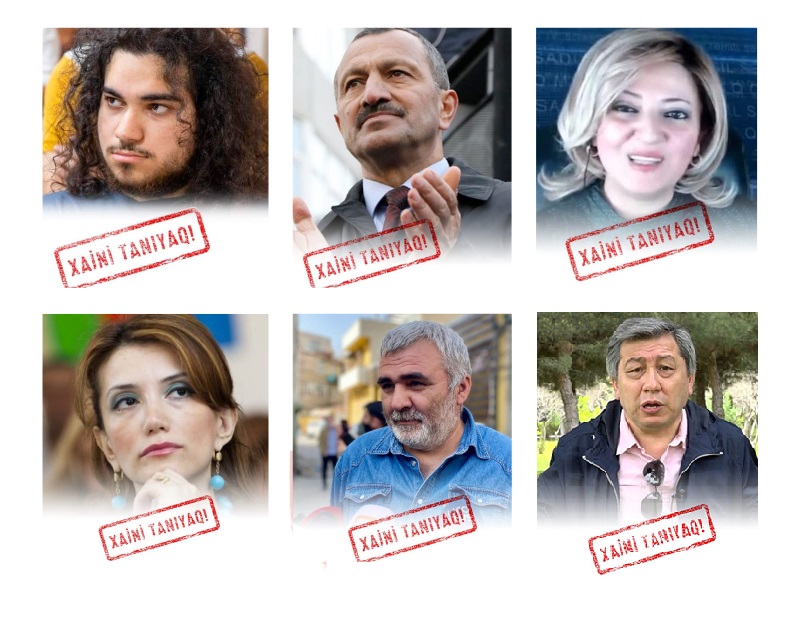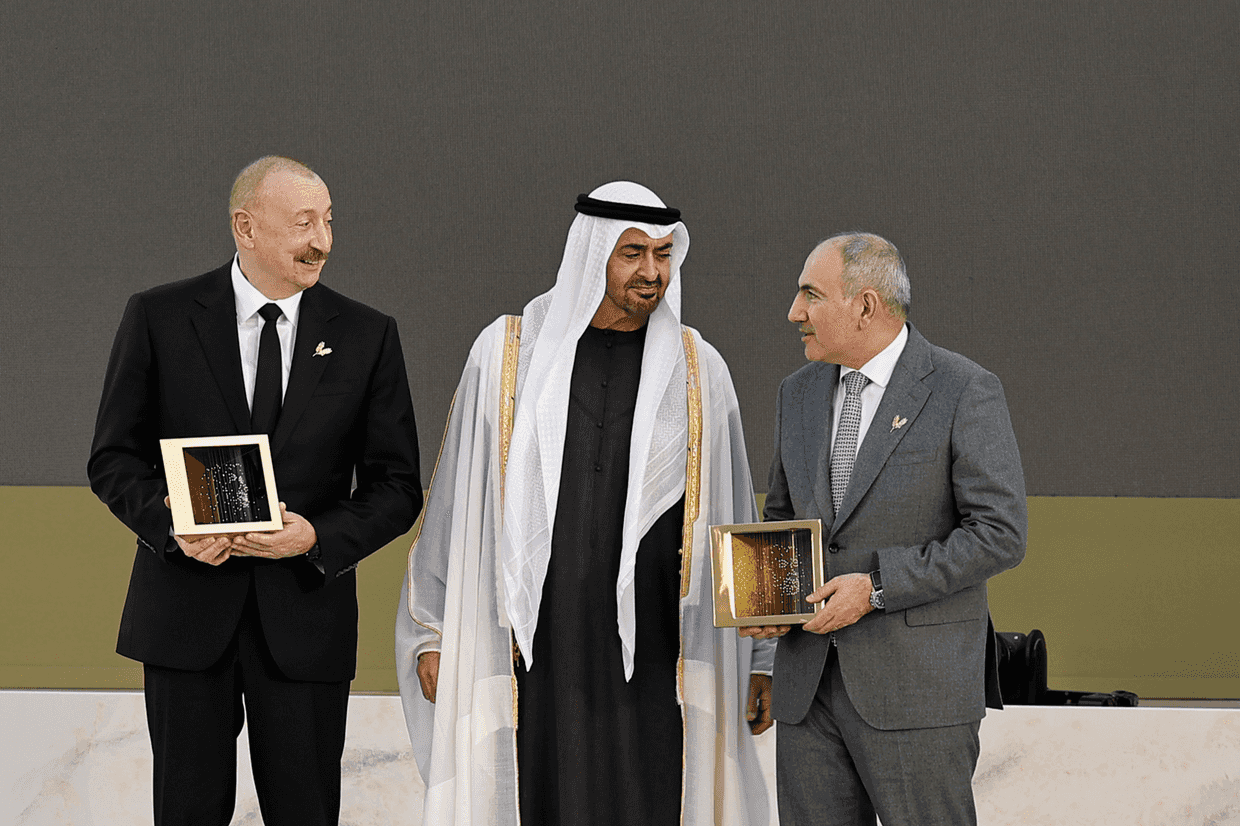
In Azerbaijan, the recent conflict with Armenia was met with an unusual domestic reaction — though some have fallen in line with Baku’s militant narrative, many others are speaking out despite campaigns to persecute or silence them.
In the early hours of 13 September, as the biggest conflict between Azerbaijan and Armenia since the Second Nagorno-Karabakh War began, Altay Goyushov posted on his Facebook page that ‘personally, I do not need Yerevan or Zangazur, and I unequivocally condemn the overnight aggression against Armenia’.
The historian and prominent opposition political activist’s words rapidly drew strong reactions, with some commenters calling him a ‘traitor of the homeland’ claiming he had been ‘infected with the liberalism virus’, and stating that Azerbaijan’s land was ‘still under occupation’.
At the same time, many others voiced their agreement, whether in comments calling for ‘peaceful’ coexistence and an end to the loss of lives, or simply with likes.
Goyushov’s statement is just one example of a wave of anti-war posts, comments, and tweets that were shared following the outbreak of the most recent Armenian-Azerbaijani conflict, and emblematic of a marked change in public discourse.
While the public was broadly united around the cause of the Second Nagorno-Karabakh War — the straightforward narrative of reclaiming long-lost and long-contested territories being an easy sell — the aims and actualities of this conflict have been far less clear.
Despite the government’s effort to frame this war as yet another instance of Azerbaijani might triumphing over Armenian aggression, the domestic reaction to these hostilities has been far less unified, with a notable rise in people expressing dissent in public despite the potential consequences.
Our children should not die
Less than two years after a war that claimed the lives of almost 3,000 Azerbaijani soldiers and injured 11,000 more, many are understandably weary of conflict.
When residents of Baku were asked by local independent media, in the days following the start of the most recent fighting, how the Nagorno-Karabakh conflict could be resolved, answers were mixed — almost all expressed the idea that there should be peace, with many saying that the war had caused suffering, that it was painful to hear the news of death from the front, and that ‘our children should not die’.
And while in 2020, many independent and opposition-aligned organisations expressed their support for the Azerbaijani army, even if not the war itself, this time there were rapid calls from civil society organisations expressing firm opposition to Azerbaijan’s aggression.
NIDA, an organisation that advocates for democratic and social change in Azerbaijan, the Democracy 1918 movement, and several public figures issued strong calls for an end to military action immediately after the conflict began.
One of these figures was independent opposition politician and director of the Institute of Political Management, Azer Gasimli, who on 13 September published an anti-war statement on his Facebook page.
‘Today, the war serves the interests not of the Azerbaijani people, but only a group of people, the authoritarian regime’, Gasimli said.
‘Healthcare, education, the economy have all been stolen, and everything is in the hands of one family. Those who have taken power send young people to their deaths for the sake of their own power.’
Azerbaijan’s main opposition parties, Popular Front and Musavat, also took a different position on this war to their stance on the 2020 war, when they actively supported the campaign to ‘reclaim’ Nagorno-Karabakh.
Ali Karimli, chair of the Popular Front Party, expressed his opposition to the military operations, saying that, ‘I, the Azerbaijani Popular Front Party and… the majority of our people, consider it our main task to ensure the sovereignty of Azerbaijan within the borders recognised by the international world, and we do not make any claims to territories outside our official borders’ — a notable contrast with the government’s irredentist approach to its territory.
Identify the traitor
A number of new narratives were put forward by the state in relation to this conflict — that Armenia had planted mines on Azerbaijani territory near the border, that a buffer zone needed to be created between Azerbaijan and Armenia — which ran alongside those that long pre-dated the most recent escalation. A concerted effort was made to propagate these narratives and control any that ran contrary.
The Prosecutor’s Office and Defence Ministry on multiple occasions strongly discouraged citizens from sharing information other than that provided by the state. Tik Tok was blocked on 14 September, with the State Security Service explaining that videos on the platform ‘cast a shadow on the successes of our army, contain military secrets, and aim to disseminate an incorrect opinion in society’.
And ‘incorrect opinions’ shared on social media were met with significant kickback.
Following the 13-14 September fighting, a public campaign was launched to shame those who speak out against the war, with their names and photographs being shared alongside their words, all stamped with the hashtag #xainitaniyaq — ‘let’s recognise the traitor’. Images and videos of activists, journalists, and politicians have been shared on Facebook and Twitter, including by the youth wing of the ruling New Azerbaijan Party (YAP) and one of the party’s employees.

Consequences for speaking out have also extended beyond the realm of online blacklisting, and into the physical world.
On 20 September, Ahmad Mammadli, the 21-year-old chair of the pro-democracy Democracy 18 Movement, was sentenced to 30 days in prison. While he was found guilty of ‘intentionally disobeying the legal requirements of a police or military officer’, his incarceration followed soon after he had made a series of public anti-war posts.
[Read more on OC Media: Chair of Azerbaijani democracy group given prison sentence following anti-government posts]
One published on 19 September referred to Ilham Aliyev as a ‘monarch who oppresses you, takes away all your basic rights, and turns the country into a company’ and ‘a dictator with blood on his hands.’
Five days earlier, he had said that ‘Ilham Aliyev will definitely answer before the international courts… for the crimes he committed not only against the Azerbaijani people but also against the Armenian people. The first task of democratic Azerbaijan will be to punish those who make nations hostile to each other.’
His colleagues and an independent lawyer believe that his arrest is related to his and his organisation’s political activity and public statements.
A completely different war
Giyas Ibrahim, a former political prisoner, made anti-war appeals during the Second Nagorno-Karabakh War and the latest military clashes. Speaking to OC Media, he noted that ‘the current situation… is completely different from the war in 2020, and the authorities are very aware of that’.
He says that people are unclear on the purpose of this most recent escalation.
‘No matter how much the internet and social networks try to create the image of public support in 2020, it’s not there… In the second Karabakh war, the aim was clear to people — to reclaim that land… But this time, people could not find any logical answer.’
Azerbaijani writer Samad Shikhi posted calls for peace following the start of the war, and agreed that the reaction to this conflict was different to that seen two years ago.
‘In the 44-day war, the vast majority of the population supported and encouraged it, but now [support] is very low.’
Speaking to OC Media, he attributed this change in part to the experiences of veterans in the 2020 war, and the way those who returned have been treated by the state.
[Read more on OC Media: Turned away:Azerbaijan’s war veterans]
‘Seeing that there is indifference to the participants of the war, people are less enthusiastic. They think that if they fight again, they will suffer again in difficult conditions. They cannot return to the enthusiasm they had in 2020.’
He also suggests that the government has shifted its rhetoric in an attempt to generate public support, making reference to the ‘Goycha–Zangazur Republic’ — staking a historic claim to the Syunik region of Armenia.
‘Probably… if this operation is successful for Azerbaijan, the percentage of support will also increase. Although it will not reach the peak of 2020, it will increase to some extent.’
Both Ibrahim and Shikhi also confirmed that they had received support for their posts, with Shikhi adding that ‘there was a small number [of people] who said that what I said was true, but they didn’t say it themselves because they were afraid’.
Ibrahim says that, while he received insults and verbal abuse following his posts, ‘those who supported what I wrote and those who shared their anti-war opinions were enough’.
When asked what opportunities for change there might be, Ibrahim said that a confrontation with power would have to take place at some point, suggesting that the narrative of ‘permanent war’ was being used by President Aliyev to ‘protect his power’ in the face of a challenging domestic socio-economic landscape.
‘At present, the burden falls on people who are against the war’.
‘The trend [of more people speaking out] shows that those who are against the war should find more courage and be more organised so that they can play the game of the current power. This is how we can go beyond the discourse desired by the authorities’.
‘As long as there is no political force that is entirely independent of the government, that has an alternative proposal for the resolution of the conflict, mutual bloodshed will continue’.









